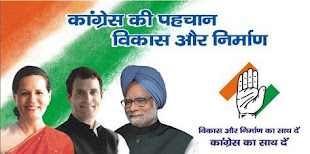Ashok Handoo
The Copenhagan summit on climate change may have ended without adopting a treaty to replace the Kyoto protocol after 2012, but India has reason to be pleased at the outcome. That is because it, along with some other developing countries, has been able to achieve at least part of its objectives.
The first achievement has been the BASIC countries - Brazil, South Africa, India and China - being able to resist the moves of the developed countries to make the developing countries sign up to a treaty to legally binding emissions targets. The industrialized countries have all along been insisting on other countries signing such a treaty so that they could be bound to such fixed targets without bothering about their development needs.
The other achievement has been that the group of four along with 20 other countries prevented the group of over 40 developed countries to fix a peaking year beyond which their carbon emissions would actually be falling. The fact is that the developing countries are far behind as far as the per capita emissions are concerned. It will take them a long time to reach anywhere near the present level of emissions by the developed countries. Fixing a peaking year would therefore impact the economic progress of the developing countries as they could not emit a higher level of carbon after that year. The accord explicitly recognizes that the timeframe for peaking year will be longer in developing countries. There is no mention of a specific peaking year. The first and overriding priority would be given to poverty eradication and livelihood.
Another achievement has been in preventing the industrialized countries to have international inspections to ensure that the developing countries are abiding to the targets to be fixed in the proposed treaty. This provision would have impinged upon the sovereignty of the individual countries. A lot of debate has taken place on the provision of ‘consultations and analysis clause’ of the accord which is being interpreted by some as allowing international inspection. But the Minister of Environment Shri Jairam Ramesh has described it only a ‘nuance’. Country’s leading Environmentalist Shri R.K.Pichauri is of the view that this does not give any country the right to inspect India’s domestic efforts to reduce greenhouse gas emissions which are unsupported. The treaty provides that rules will be framed soon to clearly define guidelines that will respect national sovereignty.
The accord has also kept the Kyoto Protocol sacrosanct as future negotiations will be based on the basic principles of the Kyoto Protocol. Unfortunately, the developed countries have been making repeated attempts to nullify the provisions of the Kyoto protocol. Earlier, the US Congress had even refused to ratify it. It binds the developed countries to take deeper cuts in carbon emissions and provide financial and technical support to the developing countries to enable them to reduce their carbon emissions. This has not been happening despite long drawn negotiations on a regular basis
The four emerging countries in the BASIC group have thus succeeded in safeguarding their national interests. Specific provisions have been made in the accord to ensure that national sovereignty is protected.
The last minute accord, in which the US and the four emerging economies along with over 20 other countries played a major role, has taken care of all the above concerns. It was reached after it became clear that the 194-nation conference was in danger of a total failure. And considering the huge expectations from the participating countries, highlighted by demonstrations across the world to urge the leaders to act, it would have been much more disastrous if nothing had been done. Certainly, the outcome could have been much more impressive.
As Shri Jairam Ramesh told the Parliament the BASIC group has emerged as a powerful force in climate change negotiations, in the face of relentless pressure from the developed countries. At the same time India’s approach has been recognized as constructive. This has been established by the fact that the conference took note of the Accord though it could not adopt it for want of a consensus. The Conference, as a matter of rule, functions on the basis of consensus in taking decisions.
The Copenhagen summit could not conclude negotiations under the Bali Action Plan (BAP) and the Kyoto Protocol, the treaty that is currently in operation to deal with climate change issues. It is now proposed to be completed by the end of 2010.
The accord sets the goals of keeping the rise in global temperature within 2 degrees Celsius to be able to deal with the challenge of global warming. It promises 100 billion dollars for poor nations that have to bear the brunt of the fallout of global warming.
The UN Secretary General, Mr. Ban ke Moon has described the accord as a significant achievement. He said it fulfills the parameters he had sought, even though the end result fell far short of even the most modest expectations voiced before the meeting. The UN would now set a high level panel on development and climate change, early next year.
Some developing countries did express a feeling of being left out in reaching the accord but the Minister clarified India will, as always, work with the group of 77 countries –together with China-in conducting the climate change negotiations as a block.
The conference also witnessed some wrangling between various countries, each blaming the other for blocking a deal. But the real answer to the problem lies in the developed countries recognizing the compulsions of the developing countries and taking bigger initiatives. At the same time the developing countries too have to take a serious note of the global threat on account of climate change. Time is running out for all countries to act and halt climate change. Journey on the road to Mexico, where the next conference will be held in December 2010, has to begin right away.



























0 Comments